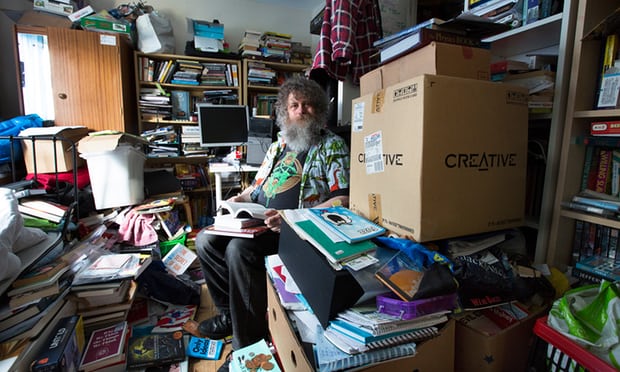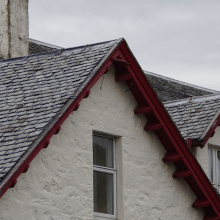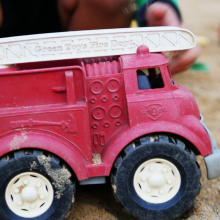Iriss is working with a mix of strategic and local partners to co-design a better and more joined up approach across Scotland to hoarding - a hidden and often misunderstood mental health issue that impacts on people who hoard, their families, communities and workers. It is estimated to affect 1 in 10 people.
Addressing health and safety issues related to hoarding behaviour is challenging and not a job that can be done by a single person or even a single organisation. Everyone needs help to be successful with a hoarding situation. But what does success mean or efficient practice look like? How can you ensure safety and manage risk - especially if the person really just wants to be left alone? What are some ways you can work with other service providers and people who hoard on these complex problems- to manage fire safety risks, and support tenancies, support the adult or family members isolated by stigma, or help those living in environments that are detrimental to their health? And how do you manage transitions from hospital to home, or home into care?
We are in the very early stages of this work, but have brought together an alliance of relevant strategic and local partners from different sectors from health and social care, social work, Housing, Fire and Rescue and the Care Inspectorate - and are still bringing more partners into the working group. The project is supported by the subject expertise of Linda Fay of the Hoarding Academy and three sets of local implementation partners - Stirling and Clackmannanshire, Pan-Lanarkshire and Glasgow HSCP. We also intend to invite people with lived experience of hoarding into the work to support its development. Our ‘explore’ phase of the work is helping us identify shared priorities, and our first and next steps.
A decade ago, Linda Fay shared her hopes for setting up a national Hoarding Task Force to bring together representatives from across relevant services to form an integrated working group. Last month, Linda’s hopes were realised when a formative Task Force - the aforementioned project partners - met for the first time. The group discussed their shared aims and ambitions, recognising the need to manage risk, prevent harmful practices like expensive clearouts and better understand the enablers and blocks in a complex system. We spoke about the need for national guidelines and practice resources based on research, evidence and lived experience to manage risk, and to understand ‘who needs to know what’.
How you can get involved?
Help us with our audit of existing resources
One of our first tasks is to better understand the range and type of resources that people across social work and social care are using to inform their work related to hoarding and if these are meeting your needs. Please tell us what documents, videos or other guidance and policy resources you use. This could include specific policies or training resources from your organisation, research articles, national guidance, UK or international documents and training videos.
Please help us by taking part in our hoarding resources audit. It’s anonymous and will only take a few minutes to complete the form - thank you!
Attend the Knowledge Café in Edinburgh
The work of the Hoarding Taskforce will run alongside the wider work of the Hoarding Academy and includes an interdisciplinary ‘Knowledge Café’ event in Edinburgh on 24th October 2024. The event will bring together world-renowned international experts on hoarding disorder and multi-agency professionals. Discussions will be led by experts implementing community-based interventions from the University of British Columbia (UBC) - Dr Christiana Bratiotis, Associate Professor in the School of Social Work, and Dr Sheila Woody, Professor in the Department of Psychology.
Participants will be amongst the first recipients outside of Canada to obtain a copy of the new Home Environment Assessment Tool for Hoarding (HEATH©). This has been created by UBC’s Centre for Collaborative Research on Hoarding for providers from diverse disciplines to communicate more effectively and plan hoarding interventions based on shared priorities with people who hoard.
To book tickets, and find out more about the programme and costs, please visit: hoarding.academy/learning/events
To end
There is much work to be done to create practical and joined up solutions to create a collective community response to hoarding – but there is already great momentum and enthusiasm from all involved at this early stage! We look forward to up-dating you on this work as it progresses.
If you would like more information about this work, please don’t hesitate to contact: kerry.musselbrook@iriss.org.uk (Project Lead) or Louise.Bowen@iriss.org.uk





